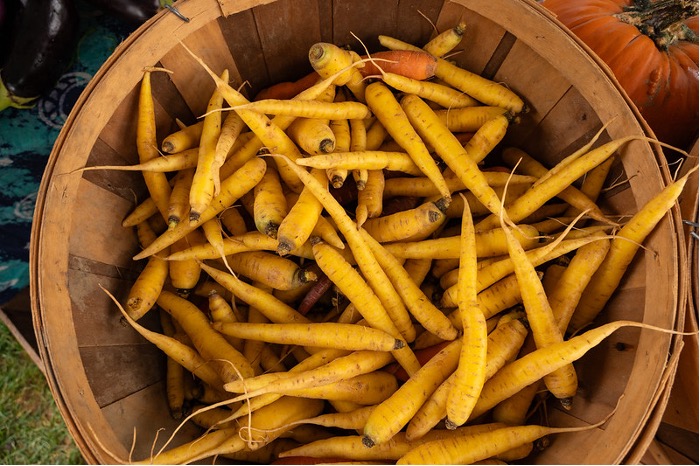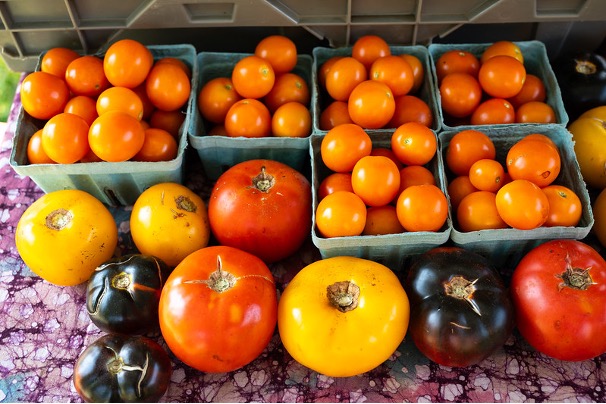What is a seasonal food?
The Massachusetts growing season is from May to November. Between those months, farmers from the Berkshires to Boston are working hard to grow, process, and sell their fruits and vegetables. Seasonal foods are bought and consumed near the time that they are harvested.
Why eat seasonally?
Food that is eaten closer to harvest is fresher and tastier. By buying directly from farmers, you can get a better idea of the farming practices that go into making your food. Buying locally supports local farmers, creates a resilient regional economy, and protects farmland. Seasonal food is grown with less energy-intensive inputs and travels fewer miles to the consumer, which means there are less fossil fuels. Fruits and vegetables grown out of season travel further from seed to table. Studies have shown that fruits and vegetables ripened on their parent plant are more nutrient-dense than those picked unripened for transit.
Below is a month-by-month guide to seasonal eating in Massachusetts. Note: Many early-season crops remain in season for the summer, and many late-season crops are available before September. This guide highlights when foods first become available locally and which remain harvested late in the season.

May:
- Asparagus
- Bok Choi
- Beets
- Spinach
- Snap Beans
June:
- Strawberries
- Carrots
- Summer Squash
- Zucchini

Late Season (September-November):
- Pumpkins
- Winter Squash
- Cranberries
- Brussel sprouts
